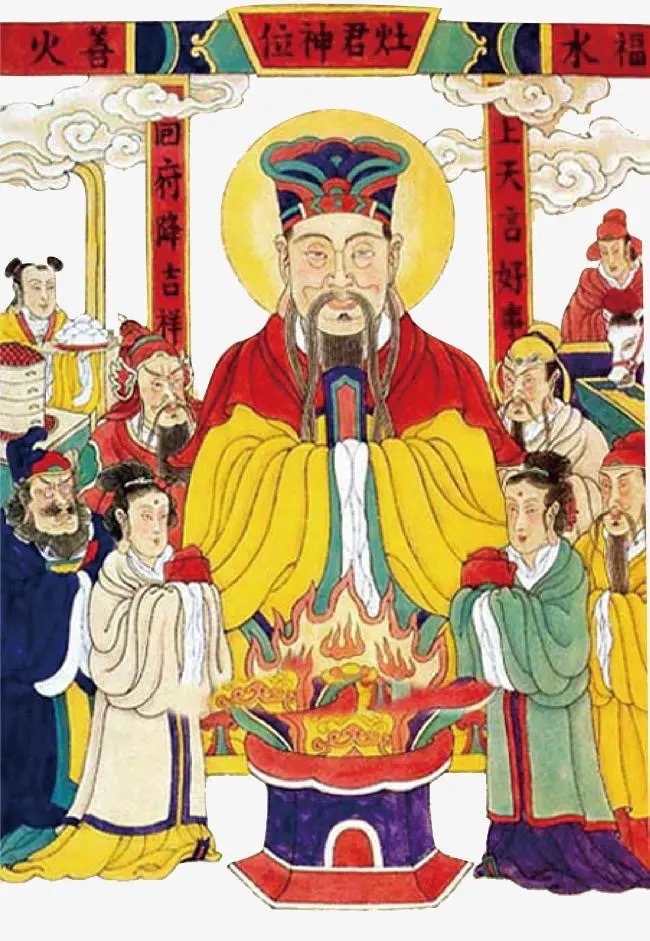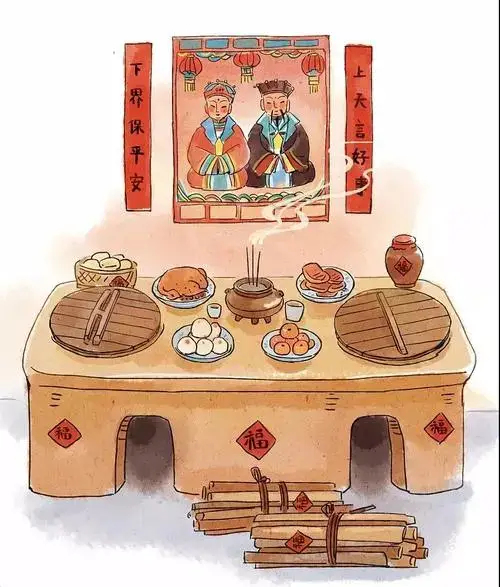The Chinese kitchen god, a.k.a Zao Shen or Zao Jun, is one of the most crucial domestic gods in Chinese culture, known to protect the family and govern their morals. Zao Shen is famously recognized in Chinese legends, folk, mythology, religion, and Taoism and is also respected and celebrated in other Asian cultures. If you’re interested in learning about the Chinese kitchen god, continue reading.
What is the Chinese kitchen god?

The Chinese kitchen god, also known as Zao Shen, Zao Jun, Zao Kimjah, Zhang Lang, or Stove God, is a Chinese god believed to report household affairs, including their conduct, to the celestial gods. The Chinese kitchen god also protected the household against evil spirits and had the power to affect the family’s prosperity. His absence in the home was believed to render the household vulnerable to evil spirits, thus becoming susceptible to being haunted.
Kitchen god history
There are several stories about the origin of the Chinese kitchen god but the most famous story, according to historians, dates back to the Han Dynasty. It’s believed that during this period, a farmer called Yin Zinfang was surprised by Zao Shen on Lunar New Year when preparing breakfast. Despite being poor, Yin Zinfang sacrificed his only yellow sheep to Zao Shen and, in doing so, became wealthy. He then made it a tradition always to sacrifice one yellow sheep every winter, to express his gratitude to Zao Shen. This tradition was adopted by others and grew as the years went by.
What does the kitchen god do?

The kitchen god’s most critical role is annually reporting to the Jade Emperor on the family’s progress. With an excellent report, the family can expect good fortune and prosperity, but with a bad report comes punishment. Also, the kitchen god was believed to protect the family against evil.
When is the kitchen god sent?
On every 23rd day of the 12th Lunar Month, seven days before the Chinese New Year is ushered in, the kitchen god is sent to the Jade Emperor to give an annual report of the affairs of a household. Zao Shen is smeared with honey or sticky sugar on his lips before his send-off to relay a “sweetened” report to the Jade Emperor. His send-off is accomplished by burning his images and lighting firecrackers.
How to pray to the kitchen god

In ancient China, the kitchen god was worshipped by incense, wine, paper horses, paper money, and paper sedan chair offerings. These were burnt under Zao Shen’s altar at home. These sacrifices were made exclusively by men, a form of prayer and giving the kitchen god a proper send-off.
What does the kitchen symbolize in China?
In China, the kitchen is the heart of the house and the family. According to Chinese beliefs, when family members are sufficiently nourished, they are content and energetic, thus bringing prosperity to the home. The kitchen also symbolizes unity in the home. This is why Zao Shen’s altar is traditionally placed in the kitchen.
Conclusion
The kitchen god was a popular figure in ancient China who contributed heavily towards the family’s safety and prosperity. Today, Zao Shen isn’t as popular, especially in the cities. However, it’s believed that some rural areas in China still recognize and worship this god.